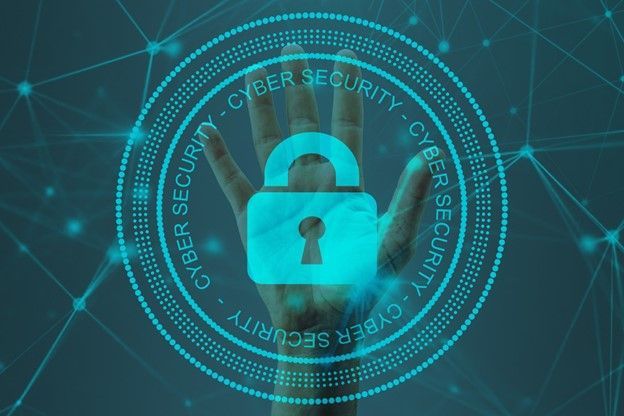Navigating the Evolving Landscape of Security Clearance for Government Contractors

Security clearance is a critical aspect of government contracting, and it plays a pivotal role in ensuring the safety and security of classified information. The landscape of security solutions for government contractors is not static; it is ever-evolving, responding to the changing needs of national security. Explore the business impact of security clearance and the value of government cyber security compliance to secure government contracts in Atlanta and Augusta, GA.
Security Clearance Levels
Security for government contractors requires various security clearance levels, each representing a different degree of access to classified information. The following will explain each level and its requirements.
- Confidential: This level is the lowest level of clearance, which grants access to information that could reasonably be expected to cause damage to national security if disclosed to unauthorized individuals. Eligibility for Confidential clearance often requires a background investigation and a clean criminal record.
- Secret: The Secret clearance level allows access to information that could cause severe damage to national security if revealed. To obtain Secret clearance, individuals must undergo a more extensive background investigation, which includes checks into foreign contacts, financial history, and criminal history.
- Top Secret: This level represents the pinnacle of security clearance, offering access to information that could potentially inflict exceptionally severe harm upon national security if it gets into the wrong hands. Obtaining Top Secret clearance is a meticulous process and involves an even deeper background investigation, often with polygraph tests.
The Clearance Application Process & Investigative Process
Obtaining security clearance as a government contractor can be complex and time-consuming. Individuals seeking clearance must complete a comprehensive application, providing detailed information about their personal, professional, and financial history. The investigative process includes interviews, reference checks, and background investigations to determine eligibility.
This investigative process can be extensive, involving thorough reviews of an applicant's life history, associations, and potential vulnerabilities to foreign influence. The purpose is to ensure that those granted clearance can be trusted with classified information.
Mitigation Strategies
Sometimes, individuals may face challenges during the clearance process due to issues in their background, such as financial problems or past legal troubles. However, it's essential to note that some issues can be mitigated, and individuals can still obtain security clearance by addressing these concerns.
Mitigation strategies may include demonstrating rehabilitation or resolving financial issues. It's crucial for individuals facing such challenges to work closely with their Facility Security Officer (FSO) and security clearance experts to develop a mitigation plan.
Security Clearance Maintenance
Security clearance is not a one-time achievement but an ongoing responsibility. Those with clearance must undergo periodic reinvestigations to ensure they continue to meet the eligibility criteria for their respective clearance levels. Individuals must report significant life changes or security concerns to their FSO promptly. Failing to do so may result in severe consequences. Your FSO will guide you through the next steps to minimize the impact of these changes on your security clearance level.
The Role of Facility Security Officers (FSOs)
Facility Security Officers play a crucial role in the security clearance process for government contractors. They are responsible for implementing security measures and ensuring employees comply with security policies and regulations. FSOs act as a liaison between government agencies and the contractor, assisting in the clearance application process and managing the ongoing security requirements.
FSOs are also responsible for reporting security violations or concerns and facilitating communication between government agencies and the contractor. Their role is instrumental in maintaining compliance with government cybersecurity standards and managing the security clearance needs of the organization.
Impacts on Business
The importance of security for government contractors cannot be overstated, and its impact on businesses is profound. A security clearance is often a prerequisite for participating in government contracts, especially those involving sensitive or classified information. Losing or failing to obtain clearance can have significant consequences for government contracting businesses, including:
- Loss of Contracts: A business without the necessary security clearance may be disqualified from bidding on or fulfilling contracts, resulting in a loss of revenue and business opportunities.
- Reputation Damage: Failing to obtain or maintain security clearance can harm a contractor's reputation. Potential clients may question the organization's trustworthiness and ability to safeguard sensitive information.
- Increased Costs: The need for security measures and compliance can add to the operational costs of a business. Failing to meet these requirements can lead to costly fines and penalties.
- Competitive Disadvantage: In a competitive market, businesses with security clearance have a distinct advantage over those without it. Losing clearance can make competing effectively in the government contracting industry challenging.
- National Security Concerns: From a national security perspective, a breach in security clearance can put classified information at risk, potentially endangering the nation's safety.
Understanding the business impact of security clearance can help contractors position themselves as a top contender for government contracts. Obtaining these contracts can quickly become the lifeblood of any contracting business and elevate their reputation to help them grow in the non-government sector.
Navigating the evolving landscape of security clearance for government contractors is a complex task that requires expertise and commitment. It's crucial for government contractors in Atlanta and Augusta, GA, to stay informed about the changing security requirements and seek professional guidance to ensure compliance with government cybersecurity standards. IBOX Global is here to assist you in understanding and managing security clearance needs and providing managed cyber security services to safeguard your business.
Contact us for more information on how IBOX Global can help you with
security solutions for government contractors, security clearance levels, and government cybersecurity compliance. Our team of experts is ready to assist you in securing your business and navigating the intricate world of government contracting.








